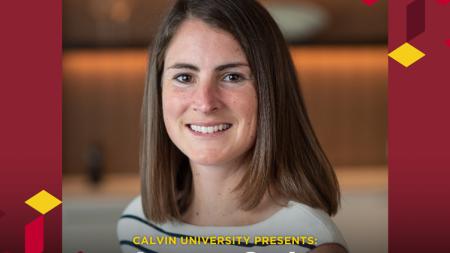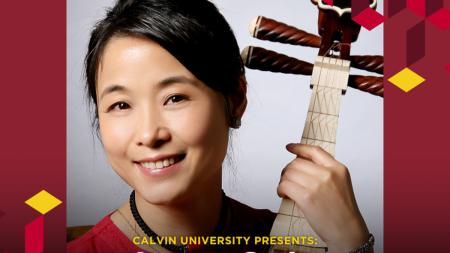John Witvliet Wins Top Award from National Association of Pastoral Musicians

John Witvliet, director of the Calvin Institute of Christian Worship, recently received the 2015 Jubilate Deo award from the National Association of Pastoral Musicians (NPM).
The award is given every year to honor "a person who has made a significant contribution to the worship life of Catholics in the U.S.," according to the NPM website (npm.org).
Witvliet, who is also professor of worship, theology, & congregational and ministry studies at Calvin College and Calvin Theological Seminary, was given the award during the NPM’s annual convention, which was held in Grand Rapids, Mich.
“I am surprised and deeply grateful for this award,” said Witvliet in a plenary speech he gave to the 1700 participants at the convention. The title of his address was “Liturgy in the Context of Joy and Sorrow: Music as Pastoral Care.”
“What a joy it is to live in the Post-Vatican II era of ecumenical hospitality that welcomes me here as a Christian from the Reformed tradition.”
Vatican II was the ecumenical council that many say broke down barriers between the Catholic Church and other churches. It did away with the requirement that the Catholic Mass be celebrated in Latin and issued in many changes in the liturgy.
Witvliet said he made close connections with Catholic scholars and musicians when he was earning his doctorate in liturgy at the University of Notre Dame in South Bend, Ind. In addition, the Calvin Institute of Christian Worship has established friendships with many Catholics who have been awarded Vital Worship grants from the institute.
These grants seek to foster vital worship in congregations, parishes, and other worshipping communities in North America. Since 2001, over 700 grants have been awarded to communities in over 30 denominations.
In addition, the institute sponsors an annual Symposium on Worship every January that draws worship communities, speakers, authors, musicians and others from many denominations to the campus of Calvin, and collaborates with several publishers who offer resources across denominational lines.
Reflecting on the convention, Witvliet commented "It is a joy to be with so many people committed to a pastoral vision for music in churches and with strong commitments to so many of our core convictions at the Calvin Institute of Christian Worship about Trinitarian worship, intercultural learning, intergenerational community, and the use of the Psalms in worship. I am deeply grateful."
In his plenary address, Witvliet discussed two ways — expressive and formative — in which Catholics and Protestants often differ in worship.
While Catholics use ritual, developed over centuries, as a way in which they approach worship, Protestants tend to favor worship that is more open-ended and less regulated, he said.
This change dates back to the time of the Reformation when the Protestant church emerged and left behind many of the rituals of the Catholic Church.
As a result, he said, “We Protestants can tend to evaluate worship on whether it expresses what we are feeling, at times neglecting to ask whether it is forming us to experience greater depth … We Protestants need your Catholic witness here.”
Witvliet called on each end of the spectrum — the formative and the expressive — to move toward the middle in order that they can work together, and not compete, in worship.
Use of music in liturgy can be one way of helping to bring these approaches together, he said.
“It is important for us to embrace worship as both an expressive and formative activity,” he said.
Also in his plenary address, Witvliet suggested that members of his audience start planning now, and not wait until later in the year, for Advent.
“This is a season we all desperately need,” he said. “Yet, our culture, as the season approaches, starts to whisper, ‘Have yourself a merry little Advent’.”
The culture turns to sentimentality and nostalgia during this time — and Witvliet cautioned people in the audience not to fall into that trap.
“Choose songs of great consequence,” he said. “Be attentive to the Holy Spirit's work in the world."
Seek with the help of prayer and song, he said, to address in liturgies the “hopes and fears of God’s people who are awash at Christmas in anxieties” over many things, from tensions in the families to tragedies in the news.
Especially, he said, offer liturgies that combine rich, long-held rituals of significance with expressive approaches that arise from the longings of the heart.
Witvliet is a frequent presenter and author of many books on worship, liturgical history, psalms, children’s baptism, and hymnody.


